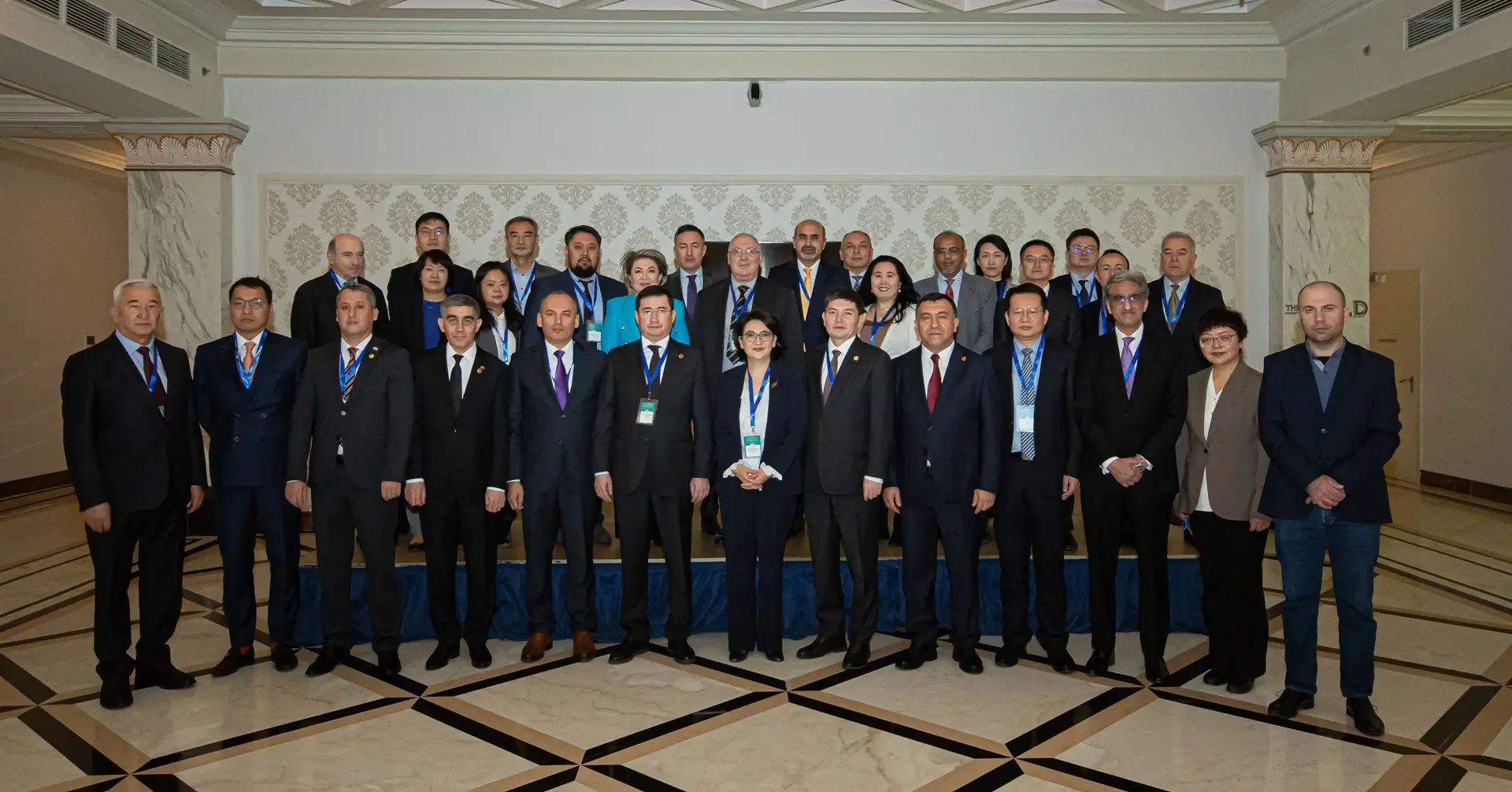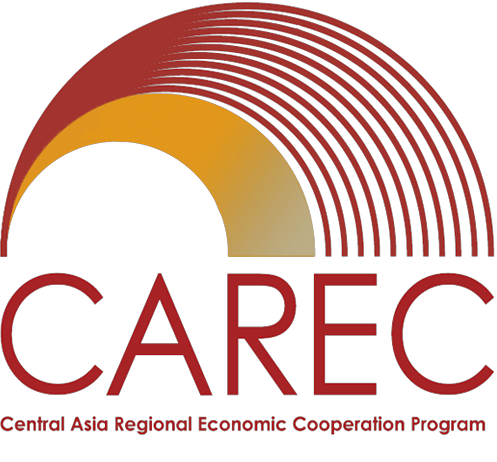14th Meeting of the CAREC Institute's Governing Council

The 14th meeting of the CAREC Institute’s Governing Council was held on December 1, 2023, in Tbilisi, Georgia, to review the institute’s 2023 Progress Report, 2024-2025 Rolling Operational Plan, and 2024 Budget, Recruitment Plan, and Staff Exchange Program. Mr. Abzal Abdikarimov, Vice-Minister of National Economy of the Republic of Kazakhstan and the CAREC National Focal Point, chaired the meeting.
Mr. Kabir Jurazoda, Director of the CAREC Institute, presented the Institute’s 2023 Progress Report. He noted that, in 2023, the CAREC Institute resumed normal operations and international staff returned to the headquarters office in Urumqi which has a positive impact on the Institute’s overall performance. The CAREC Institute continues macroeconomic monitoring in the CAREC region by producing quarterly economic monitors in three languages: English, Russian, and Chinese, which are becoming popular among national policymakers. During 2023, the Institute’s staff produced two economic briefs, five policy briefs, three research publications, five knowledge adaptations and twelve newsletters. The Institute implements seven in-house research projects and provides research grants to four national think tanks and five fellowships to independent researchers from the CAREC region. The number of joint webinars and projects with key partners has also increased: the Institute conducted 20 capacity-building activities this year. The CAREC Institute established three new partnerships in 2023 and is working on three more new partnerships with institutions in the CAREC region.
The Director noted that research conferences and forums of the CAREC Institute stimulate research collaboration and capacity building to create cutting-edge research products that will enable CAREC countries to remain at the forefront of sustainable development and economic integration. The CAREC Institute successfully held the Seventh CAREC Think Tanks Development Forum in Urumqi and the Third Annual Research Conference online. The Second Annual Book of the CAREC Institute was published as a collection of research papers by independent researchers from the CAREC region. With the support of the Ministry of Finance and the government of Xinjiang Uygur Autonomous Region of the People’s Republic of China, the Institute’s office will be reallocated to a new location in Urumqi’s business area. “The most remarkable news of this year is the ratification of the Intergovernmental Agreement of the Institute by the Republic of Kazakhstan. The agreement has now been fully ratified by all founding countries of the CAREC Institute,” said Mr. Kabir Jurazoda.
Deputy Director One Dr. Jingjing Huang presented the 2024 Budget and Recruitment Plan of the CAREC Institute. She noted the importance of diversifying the CAREC Institute’s resource base by attracting additional contributions from key partner organizations and member countries that can expand the institute’s activities, bringing greater benefits to CAREC Institute member countries through diversified knowledge sharing and capacity-building activities. “Furthermore, the Institute is considering a restructuring plan to devote more resources to research services without any impact on current staff and budget,” said Dr. Jingjing Huang.
CAREC Institute’s 2024-2025 Rolling Operational Plan was presented by the Chief of the Strategy Planning Division, Mr. Khalid Umar. The Institute’s research activities will focus on three main directions: i) The Economics of Disruptive Technological Change and Innovation, especially the green energy transition with a focus on green finance, sustainable/circular industry policies, and digitalization issues of infrastructure, fintech, e-commerce, and Industry 4.0; ii) Economic Corridors and Connectivity, including trade facilitation, CPMM, digital corridors, transit versus local corridor utilization; and iii) Socioeconomic Impact and Inclusivity, including such subjects as future of work, training and (re)qualification, internal and external migration. In the next two years, the capacity-building activities will be tightly aligned with research activities, optimizing geographical outreach and use of e-learning capabilities by designing and delivering hybrid and blended learning capacity building programs. The CAREC Institute will continue external communications and outreach, knowledge adaptation and advocacy campaigns, building new partnerships with regional media.
Members of the Governing Council shared their views on the 2024-2025 Rolling Operational Plan and budget. The PRC representative stated that it is important to conduct in-country consultations so that CAREC member countries can contribute to identifying research topics needed to inform policy at the national and regional levels. He assured China’s continued support for the CAREC Institute. The ADB representative supported the Institute’s proposal on a more focused, three-pronged approach to research, and suggested to focus on improving the Institute’s knowledge products and institutional effectiveness. Members of the Governing Council commended the progress of the CAREC Institute in 2023 and endorsed its planned activities for 2024 to provide necessary analytical and capacity-building products and services for promoting regional connectivity, trade and economic cooperation. They specifically asked the CAREC Institute to help member countries, through knowledge products, better understand climate and disaster risks, and support risk-sensitive policies and investments, in line with the CAREC Climate Change Vision document approved by CAREC ministers the day before (i.e. on November 30).
The Governing Council is an apex decision-making body of the Institute that reviews the Institute’s progress and approves work plan, budget and institutional rules and policies. It draws its membership from all eleven countries of the CAREC Program, and currently CAREC Program’s National Focal Points serve as members of Governing Council. The chairmanship of the Governing Council is held by the country chairing the CAREC Program, following the system of alphabetical rotation among CAREC member countries. Currently, under the CAREC Institute Governing Council, there are Advisory Council and two committees − Selection and Recruitment Committee, and Budget and Audit Committee.
Key Documents
